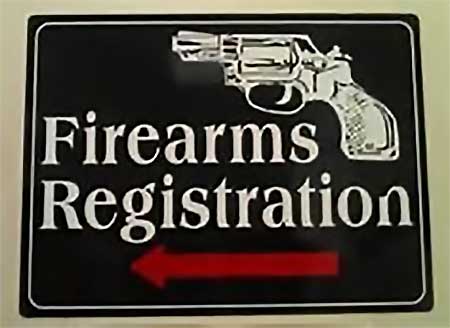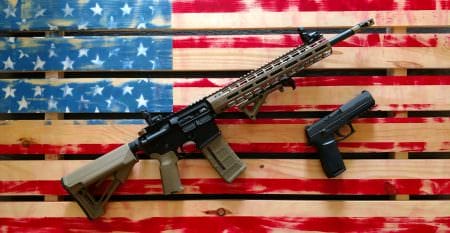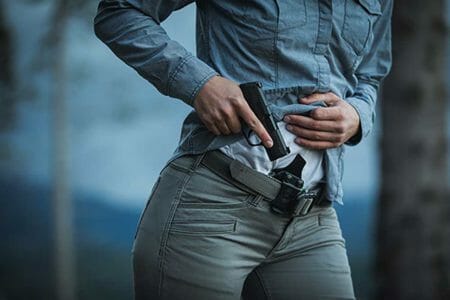
The debate over firearm registration often includes a familiar analogy: “We register to vote, so why not register to own a gun?”
At first glance, the comparison appears simple—both voting and keeping arms are rights protected by the Constitution. However, a closer look at the legal, historical, and functional differences between these rights reveals why the analogy is flawed.
The Constitutional Foundations
- Multiple constitutional amendments (15th, 19th, 24th, 26th) protect voting, which is recognized as a cornerstone of representative democracy.
- The Right to Keep and Bear Arms is explicitly protected by the Second Amendment, with the clear directive that it “shall not be infringed.”
While both rights are essential to liberty, the Second Amendment contains an unusually strong prohibition on government interference—language not mirrored in voting amendments. This distinction matters: it shows the framers saw the keeping of arms as a safeguard against government overreach, not just a civic process to be managed.
The Purpose of Registration in Each Context
- Voter Registration exists to confirm eligibility: age, residency, citizenship, and prevention of fraud. It does not restrict the existence or possession of the right itself; it simply manages when and where it is exercised.
- Gun Registration, by contrast, involves cataloging the private ownership of specific tools that can be physically seized. This creates a direct pathway to confiscation—something voting registration does not enable.
In practical terms, voter rolls are lists of people eligible to cast a ballot; they are not inventories of ballots stored in citizens’ homes. A firearm registry is an inventory—linking specific tools to specific individuals—making the potential for abuse much higher.
Historical Risks of Gun Registration
Throughout the 20th century, authoritarian regimes often began disarming citizens by first requiring registration. Historical examples from Germany, the Soviet Union, and other nations illustrate how such registries became tools for confiscation, leaving the population defenseless against state power.
Voter registration lists have never been used to prevent lawful citizens from casting ballots in a similar sweeping, physical manner. While voter suppression exists as a political problem, it is not comparable to the armed seizure of constitutionally protected property.
The Role of Government Trust
Supporters of gun registration argue it could help law enforcement assess risk before responding to dangerous calls. Opponents note that it requires a level of trust in government that the Second Amendment was specifically designed to limit.
Voting rights advocates may accept government control over voter rolls because the act of voting inherently depends on a centralized process—elections. Gun ownership, however, exists independent of the state and is meant, in part, to provide a counterbalance to it.
Key Differences in Liberty Impact
| Aspect | Voter Registration | Gun Registration |
|---|---|---|
| Purpose | Verify eligibility | Track possession of physical property |
| Risk of Abuse | Administrative errors, targeted suppression, corruption by non-citizens | Enables confiscation, historically misused by authoritarian regimes |
| Dependency on the State | Inherent—elections are state-run | Independent—firearms are privately held |
| Constitutional Language | Multiple amendments, no “shall not be infringed” | Explicit “shall not be infringed” directive |
| Effect of Registry Removal | Harder to confirm eligibility | Removes pathway to confiscation |
Conclusion
The analogy between voter registration and gun registration oversimplifies two fundamentally different systems. Voter registration is an administrative safeguard for a state-run process; gun registration is a list of private arms held by citizens—precisely the kind of record history shows can be turned against the people.
In a free society, protecting the right to vote matters greatly. But, protecting the right to keep and bear arms is what ensures all other rights—including voting—remain secure.
Did we get it right? Did we get it wrong? Let us know in the comments below.
We are in dangerous times! We are NOT meeting our funding goals! Will you help out?
Guns, Rights, & Responsibilities: A Civil Conversation ~ Should There Be a Line? ~ VIDEO





governments take guns because they want to be in power people be dammed , all the more reason to have machine guns and cannons , surface to surface missiles in the garage
I like my guns the way commiecrats like immigrants: undocumented!
the Bill of Rights, the first 10 Amendments, are the core rights of our constitutional republic which are added to the Constitution to constrain our government, because as we have seen, an unchecked government will morph into tyranny. the “right to vote” the 15th Amendment was ratified after the civil war because some government agents (D) didn’t want some other people that didn’t look like them to be represented in congress. voter registration is to be used by the government to prevent abuse of the electoral system. yet, recently we have seen how this has been abused. firearm registration can… Read more »
only reason to register a tank is to drive it on the road
At the 2025 GOA GOALS Conference in Knoxville 8/9-10, Just became aware of “Confrontational Politics” book by Senator H.L. Richardson, Ret. Fantastic explanation of humanistic/Liberal agendas and fighting tactics compared to American traditionalists tactics…or lack thereof. A must read by Conservatives to understand and win against Libturds/humanists.